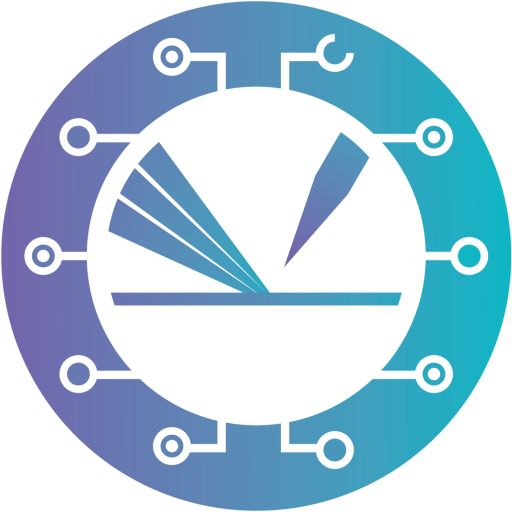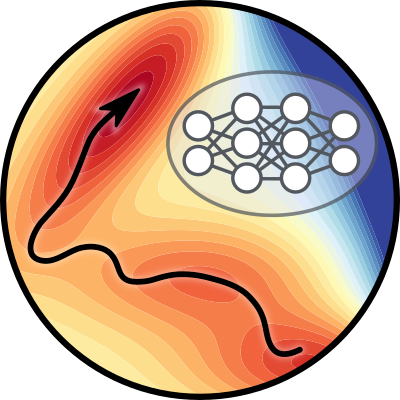Neural-network based simulation of rare event processes at the water/oxide interface
Subproject P12
Atomistic computer simulations of processes occurring at the water/oxide interface are challenging in several ways. The calculation of atomic forces based on ab initio methods is computationally very demanding, and barrier crossing events may lead to long computation times. Both these aspects severely limit accessible system sizes and simulation times.
In project P12, we will address these challenges using a combination of machine learning and advanced rare event sampling methods. In particular, using software developed in our group and collaborating with P03 Kresse, we will train neural network potentials based on the Behler-Parrinello approach for oxide/water interfaces, starting with the Fe3O4/water system studied in P11 Backus. We will pay special attention to error estimation and the correct treatment of long-range interactions. With the new potential, we will study the structure and dynamics of water near the oxide surface to provide the atomistic information necessary to rationalize the spectroscopy experiments of P11 Backus. Another important goal of P12 is to explore how deep generative models can be used to enhance rare event simulations. For this purpose, we will apply normalizing flows, represented by deep neural networks, to trajectory space. The resulting improved transition path sampling simulations will be used to study reactive processes investigated experimentally in other subprojects of TACO.
Expertise
Our research efforts focus on the development of simulation algorithms and their application to investigate dynamical processes in condensed matter systems based on the principles of equilibrium and non-equilibrium statistical mechanics. In particular, we have helped to create the transition path sampling methodology for the simulation of rare but important events, such as nucleation aprocesses, chemical reactions and biomolecular reorganizations. More recently, we have worked on applying machine learning methods to molecular structure recognition and the representation of potential and free energy surfaces.
Recent research topics include:
- Self-assembly of nanocrystals
- Folding and unfolding of biopolymers
- Interfaces in aqueous systems
- Phase separation in alloys
- Thermo-polarisation
- Structure and dynamics of water and ice
- Cavitation
- Crystallization
- Non-equilibrium work fluctuations
Team
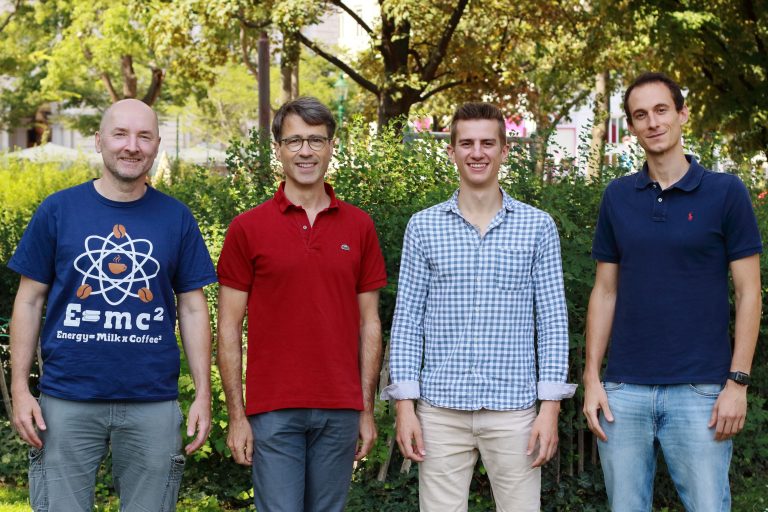
Associates
Publications
2016
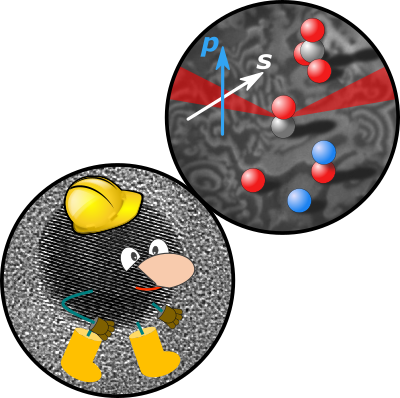
Wolfbeisser, Astrid; Sophiphun, Onsulang; Bernardi, Johannes; Wittayakun, Jatuporn; Föttinger, Karin; Rupprechter, Günther
Methane dry reforming over ceria-zirconia supported Ni catalysts
Journal ArticleOpen AccessIn: Catalysis Today, vol. 277, pp. 234–245, 2016.
Abstract | Links | BibTeX | Tags: P08, P10, pre-TACO
@article{Wolfbeisser2016,
title = {Methane dry reforming over ceria-zirconia supported Ni catalysts},
author = {Astrid Wolfbeisser and Onsulang Sophiphun and Johannes Bernardi and Jatuporn Wittayakun and Karin Föttinger and Günther Rupprechter},
doi = {10.1016/j.cattod.2016.04.025},
year = {2016},
date = {2016-11-15},
urldate = {2016-11-15},
journal = {Catalysis Today},
volume = {277},
pages = {234--245},
publisher = {Elsevier BV},
abstract = {Nickel nanoparticles supported on Ce_{1-x}Zr_{x}O_{2} mixed oxides prepared by different synthesis methods, as well as Ni-ZrO_{2} and Ni-CeO_{2}, were evaluated for their catalytic performance in methane dry reforming (MDR). MDR is an interesting model reaction to evaluate the reactivity and surface chemistry of mixed oxides. Textural and structural properties were studied by N_{2} adsorption and XRD. Mixed oxide preparation by co-precipitation resulted in catalysts with higher surface area than that of pure ZrO_{2} or CeO_{2}. XRD analysis showed the formation of different Ce_{1-x}Zr_{x}O_{2} solid solutions depending on using a surfactant or not. The catalyst prepared by surfactant assisted co-precipitation was not active for methane dry reforming most likely because of the encapsulation of Ni particles by ceria-zirconia particles, as revealed by TEM and H_{2} chemisorption. The catalytic activity of the catalyst prepared by co-precipitation without surfactant was comparable to Ni-ZrO_{2}. Clearly, catalyst activity strongly depends on preparation and on the resulting phase composition rather than on nominal composition. Compared to Ni-ZrO_{2} the ceria-zirconia supported Ni catalyst did not achieve higher activity or stability for methane dry reforming but, nevertheless, the formation of filamentous carbon was strongly reduced (100 times less carbonaceous species). Consequently, using ceria-zirconia as a support material decreases the risk of reactor tube blocking.},
keywords = {P08, P10, pre-TACO},
pubstate = {published},
tppubtype = {article}
}
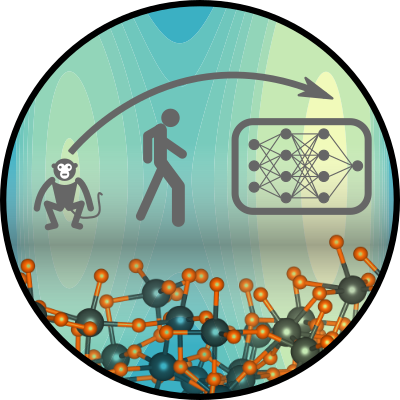
van Roekeghem, Ambroise; Carrete, Jesús; Oses, Corey; Curtarolo, Stefano; Mingo, Natalio
Journal ArticleOpen AccessIn: Physical Review X, vol. 6, no. 4, pp. 041061, 2016.
Abstract | Links | BibTeX | Tags: P09, pre-TACO
@article{Roekeghem2016,
title = {High-Throughput Computation of Thermal Conductivity of High-Temperature Solid Phases: The Case of Oxide and Fluoride Perovskites},
author = {Ambroise van Roekeghem and Jesús Carrete and Corey Oses and Stefano Curtarolo and Natalio Mingo},
doi = {10.1103/physrevx.6.041061},
year = {2016},
date = {2016-06-13},
urldate = {2016-06-13},
journal = {Physical Review X},
volume = {6},
number = {4},
pages = {041061},
publisher = {American Physical Society (APS)},
abstract = {Using finite-temperature phonon calculations and machine-learning methods, we assess the mechanical stability of about 400 semiconducting oxides and fluorides with cubic perovskite structures at 0, 300, and 1000 K. We find 92 mechanically stable compounds at high temperatures—including 36 not mentioned in the literature so far—for which we calculate the thermal conductivity. We show that the thermal conductivity is generally smaller in fluorides than in oxides, largely due to a lower ionic charge, and describe simple structural descriptors that are correlated with its magnitude. Furthermore, we show that the thermal conductivities of most cubic perovskites decrease more slowly than the usual T^{−1} behavior. Within this set, we also screen for materials exhibiting negative thermal expansion. Finally, we describe a strategy to accelerate the discovery of mechanically stable compounds at high temperatures.},
keywords = {P09, pre-TACO},
pubstate = {published},
tppubtype = {article}
}
2014

Föttinger, Karin; Rupprechter, Günther
Journal ArticleIn: Accounts of Chemical Research, vol. 47, no. 10, pp. 3071–3079, 2014.
Abstract | Links | BibTeX | Tags: P08, P10, pre-TACO
@article{Foettinger2014,
title = {In Situ Spectroscopy of Complex Surface Reactions on Supported Pd–Zn, Pd–Ga, and Pd(Pt)–Cu Nanoparticles},
author = {Karin Föttinger and Günther Rupprechter},
doi = {10.1021/ar500220v},
year = {2014},
date = {2014-09-23},
journal = {Accounts of Chemical Research},
volume = {47},
number = {10},
pages = {3071--3079},
publisher = {American Chemical Society (ACS)},
abstract = {It is well accepted that catalytically active surfaces frequently adapt to the reaction environment (gas composition, temperature) and that relevant “active phases” may only be created and observed during the ongoing reaction. Clearly, this requires the application of in situ spectroscopy to monitor catalysts at work. While changes in structure and composition may already occur for monometallic single crystal surfaces, such changes are typically more severe for oxide supported nanoparticles, in particular when they are composed of two metals. The metals may form ordered intermetallic compounds (e.g. PdZn on ZnO, Pd_{2}Ga on Ga_{2}O_{3}) or disordered substitutional alloys (e.g. PdCu, PtCu on hydrotalcite). We discuss the formation and stability of bimetallic nanoparticles, focusing on the effect of atomic and electronic structure on catalytic selectivity for methanol steam reforming (MSR) and hydrodechlorination of trichloroethylene. Emphasis is placed on the in situ characterization of functioning catalysts, mainly by (polarization modulated) infrared spectroscopy, ambient pressure X-ray photoelectron spectroscopy, X-ray absorption near edge structure, and X-ray diffraction. In the present contribution, we pursue a two-fold, fundamental and applied, approach investigating technologically applied catalysts as well as model catalysts, which provides comprehensive and complementary information of the relevant surface processes at the atomic or molecular level. Comparison to results of theoretical simulations yields further insight.
Several key aspects were identified that control the nanoparticle functionality: (i) alloying (IMC formation) leads to site isolation of specific (e.g. Pd) atoms but also yields very specific electronic structure due to the (e.g. Zn or Ga or Cu) neighboring atoms; (i) for intermetallic PdZn, the thickness of the surface alloy, and its resulting valence band structure and corrugation, turned out to be critical for MSR selectivity; (ii) the limited stability of phases, such as Pd_{2}Ga under MSR conditions, also limits selectivity; (iii) favorably bimetallic catalysts act bifunctional, such as activating methanol AND water or decomposing trichlorothylene AND activating hydrogen; (iv) bifunctionality is achieved either by the two metals or by one metal and the metal–oxide interface; (v) intimate contact between the two interacting sites is required (that cannot be realized by two monometallic nanoparticles being just located close by).
The current studies illustrate how rather simple bimetallic nanoparticles may exhibit intriguing diversity and flexibility, exceeding by far the properties of the individual metals. It is also demonstrated how complex reactions can be elucidated with the help of in situ spectroscopy, in particular when complementary methods with varying surface sensitivity are applied.},
keywords = {P08, P10, pre-TACO},
pubstate = {published},
tppubtype = {article}
}
Several key aspects were identified that control the nanoparticle functionality: (i) alloying (IMC formation) leads to site isolation of specific (e.g. Pd) atoms but also yields very specific electronic structure due to the (e.g. Zn or Ga or Cu) neighboring atoms; (i) for intermetallic PdZn, the thickness of the surface alloy, and its resulting valence band structure and corrugation, turned out to be critical for MSR selectivity; (ii) the limited stability of phases, such as Pd2Ga under MSR conditions, also limits selectivity; (iii) favorably bimetallic catalysts act bifunctional, such as activating methanol AND water or decomposing trichlorothylene AND activating hydrogen; (iv) bifunctionality is achieved either by the two metals or by one metal and the metal–oxide interface; (v) intimate contact between the two interacting sites is required (that cannot be realized by two monometallic nanoparticles being just located close by).
The current studies illustrate how rather simple bimetallic nanoparticles may exhibit intriguing diversity and flexibility, exceeding by far the properties of the individual metals. It is also demonstrated how complex reactions can be elucidated with the help of in situ spectroscopy, in particular when complementary methods with varying surface sensitivity are applied.
